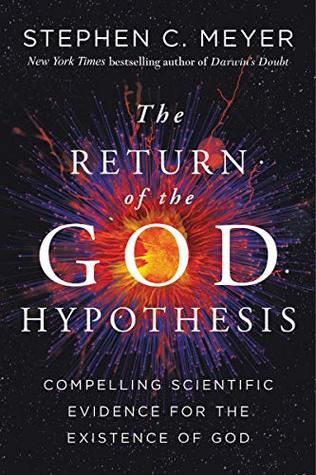More on this book
Community
Kindle Notes & Highlights
Read between
May 15 - June 18, 2023
Gingerich and Sandage also discussed discoveries in physics showing how the universe had been finely tuned from the beginning of time—in its physical parameters and initial arrangements of matter—to allow for the existence of complex life. This suggested to them some prior intelligence responsible for the “fine tuning.”
If we think about what is needed for the viable birth of science, we see first of all that it needs a fairly well-developed society, so that some of its members can spend most of their time just thinking about the world, without the constant preoccupation of finding the next meal. It needs some simple technology, so that the apparatus required for experiments can be constructed. There must also be a system of writing, so that the results can be recorded and sent to other scientists, and a mathematical notation for the numerical results of measurements. These may be called the material
...more
“Darwin told us where we came from, Marx told us where we are going, and Freud told us about human nature and what to do about our guilt.”
The light coming from a galaxy moving away from the earth appears “red shifted” as the wavelengths of the light coming from that galaxy are stretched out or lengthened. The light coming from a galaxy moving toward the earth appears “blueshifted” as the wavelengths of the light coming from that galaxy are compressed or shortened.
Einstein came to this conclusion using a series of thought experiments (Fig. 5.2).3 In one of these, he imagined himself sitting on a train traveling away from a clock tower approaching the speed of light. Since light coming from the clock carried information about the change in position of the hands of the clock—that is, about the passage of time—he realized that if he traveled near the speed of light, information about the movement of the clock hands would take longer and longer to catch up to him as he moved away from the clock at higher and higher speeds and got closer and closer to
...more
The BGV Theorem. The Borde-Guth-Vilenkin (BGV) theorem states that any universe that is on average expanding must have had a beginning. The theorem can be understood by imagining a spaceship traveling toward earth.
The apparent velocity (Va) for the spaceship as measured by an earthbound observer equals the actual velocity of the spaceship minus the velocity of the local space in which the spaceship resides as that space moves away from the earth due to the expansion of the universe.
More impressively, the ratio of the electromagnetic force to gravity must be accurate to 1 part in 1040. Were this ratio a bit lower, the gravitational attraction would be too strong in comparison to the contravening force of electromagnetism pushing nuclei apart.
Shannon generalized this relationship by stating that the amount of information conveyed by an event or sequence of characters is inversely proportional to the probability of its occurrence.
It turns out that the specific arrangements of bases in DNA, like the arrangement of letters in an English sentence or digital characters in computer software, do not just exhibit a high degree of mathematical improbability. Instead, the specific arrangements of the nucleotide bases (especially in the coding regions of DNA) enable the DNA bases to perform a function in the cell.
scientific materialism, dialectical materialism, and atheistic existentialism have different views of human nature—that is, whether human beings have free will or not and, if not, what determines human behavior or the development of human history. Nevertheless, all represent different forms of naturalism. All deny the existence of God, and all hold that matter and energy constitute the prime realities.
the worldview of theism includes Christian, Jewish, Islamic, and nonreligious forms of theism, all of which affirm a personal God as the prime reality, but each of which has a differing view about the nature or attributes of that God.
Many people acquire their worldview by osmosis from their surrounding culture. They often have unexamined presuppositions about the nature of nature, of human beings, or of ultimate reality.
this is precisely what abductive reasoning does. It provides a reason for considering that a hypothesis might be true. Indeed, it gives a reason for believing a hypothesis, even if one cannot affirm the hypothesis (or conclusion) with certainty.
Descartes used a famous argument in an attempt to prove the existence of God. He argued (first premise) that many people have a clear and distinct idea of a perfect being. He then asserted (second premise) that nothing short of the existence of such a being could cause that idea. From these two premises, he deduced that God must exist.


